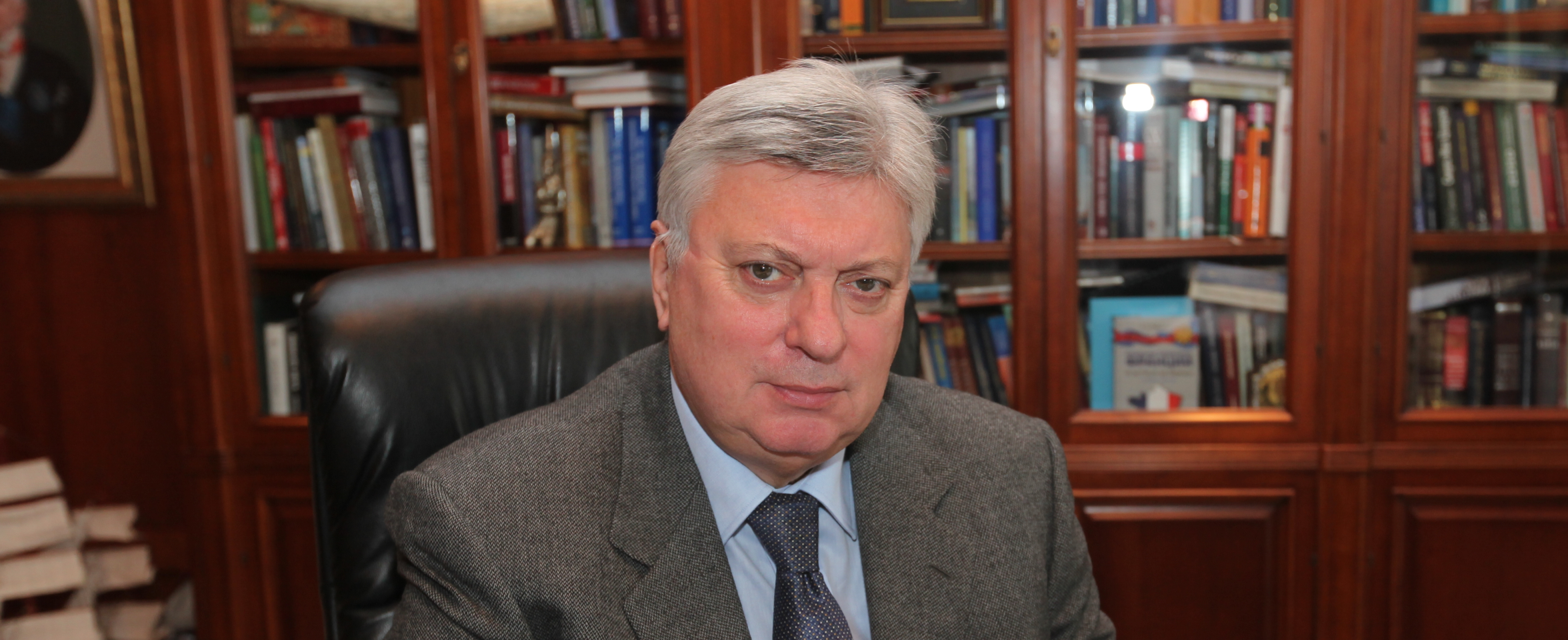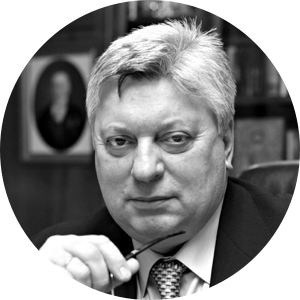The Eurasian Strategies Consulting was established in 2017 as an affiliated consulting branch of MGIMO University. This analytical center aims at consulting leaders of public and corporate sectors in Russia and Eurasia. In his interview MGIMO rector Anatoly Torkunov elaborates on the newly-founded agency’s plans.
– Anatoly Vasilievich, could you detail what is the mission of the Eurasian Strategies?
The mission of MGIMO is getting broader as years go by. Now it encompasses not only closed analytics that serve interests of the government agencies. We have established the consulting branch to offer MGIMO expertise, that was previously unavailable on the market, in analyzing international relations and devising strategies. Our products mainly target heads of big corporations and important decision-makers.
Many of them run their organizations against the backdrop of increased country risks and political uncertainty. Our mission consists in shaping a constructive international setting which will help our partners meet their goals. Our plan is to try to achieve it by means of using cutting-edge political expertise, developing high-level contacts and elaborating efficient strategies that will consider both political and regulatory risks.
– How do you estimate the prospects of economic relations between Russia and other countries and is there demand for political risk-assessment services?
Despite external pressure and unfavorable economic environment, we are quite optimistic in assessing Russian international economic policy. The indicators of Russian companies are getting back to pre-crisis level, exports are growing, and Russian enterprises are expanding their market presence in new quality. Sanctions-associated obstacles make companies search for more creative solutions; however, there is always a way-out.
Clearly, a high-quality system of strategic decision-making is impossible without political risk-assessment that is essential for companies with billion investments abroad. Such companies need a political situation to be constantly monitored and reported, profiles of key players prepared and state of affairs in legislative bodies as well the peculiarities of their regulation analyzed. Establishing and developing contacts with foreign political establishment is also high on our agenda.
Dozens of Russian companies have projects abroad that are worth tens of billions of dollars. In contrast, foreign enterprises working in Russia and Eurasia are concerned about the existing sanctions and the potential influence foreign institutions’ regulatory practices can have on them. That is why we can see the demand for political risk-assessment services, and creating the consulting agency addresses this demand.
– Role of consulting in assessing political risks looks rather specific. If there is any market of consulting services, how competition looks like?
The market exists, though it is not quite structured. There are offers coming from foreign consultants; however, they do not always meet the requirements of Russian corporations because foreign agencies all too often do not show profound knowledge of local realia or provide ideologically-charged and formalized assessment based on international rankings. Also, there are offers coming from Russian academic institutions, with business units claiming the former are not ready for immediate decision-making and need to be adapted to business environment.
What we offer is expected to bridge the existing gap. Namely, our aim is to provide expert assessment in conditions of high uncertainty given that the analytical product should be convenient in decision-making. What we offer Russian companies is professional expertise adapted to immediate decision-making whereas unbiased “second opinion” regarding strategic projects is what we are ready to offer to foreign companies.
– Consulting centers attached to Universities are not uncommon. For instance, the Harvard University Belfer Center or Oxford Analytica. What is the advantage of MGIMO, then?
Our consulting agency rests upon best practices of the original school of applied international relations analysis that has been in place at MGIMO since 1970s. At that time work was carried out at the Problem Laboratory for Systemic Analysis of International Relations known as “Problemka”. This Laboratory focused on preparing classified analytics in the interest of the Soviet foreign policy establishment.
The Eurasian Strategies will be based on key components of the MGIMO as the world’s leading center for international political analytics. MGIMO has unique infrastructure and expertise on the majority of the world’s countries. Our university teaches 53 foreign languages. We have a global network of horizontal contacts among our professors, analysts and graduates.
Our alumni deserve a special mention. They are part of many counties’ establishment. Senior officials in various states call MGIMO their alma mater. Our Alumni Association is one of the most representative of its kind in the world.
At the end of the day, our university constitutes an important means of second-track political dialogue between Russia and many other countries, including France, Poland, Japan, and Georgia, which gives us another competitive advantage.
– As we understand, a new agency largely stems from the Foreign Policy Advisory Group. Which new dimensions has the new agency acquired?
Back in 2014 our staff and graduates founded the Foreign Policy Advisory Group which laid the organizational foundations for the Eurasian Strategies. As a matter of fact, our colleagues created from scratch one of the leading Russian analytical centers that offers authoritative products – foreign policy digests, high-profile reports and annual forecasts.
The Foreign Policy established its own network of international contacts and successfully completed several projects. Last year a team of MGIMO staff and the Foreign Policy analysts won a research grant sponsored by the Russian Government. As a result, the beginning of this year was marked by creating the Laboratory of International Trends Analysis that conducts research based on advanced technologies using big data.
We aim at providing analytics based on advanced technologies by combining efforts of the Laboratory with that of the Eurasian Strategies. This synthesis will enable the new agency to offer previously unavailable MGIMO expertise in analyzing international relations and elaborating strategies for corporate and public officials that act under increased political risks.












